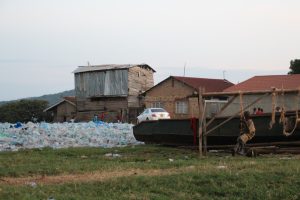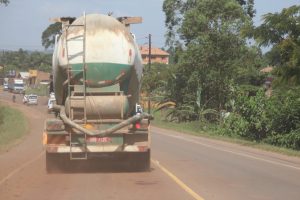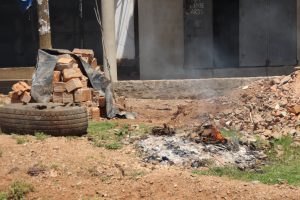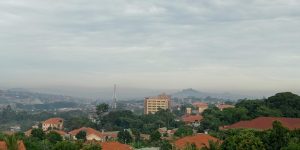Kampala NOSES is a pilot project that seeks to introduce novel ways with which to monitor and record odour issues across Kampala. All key stakeholders, from policy-makers to public sector administrators, from academics to industries and the community at large are needed to create a longer-term vision of implementing new environmental reporting and governance mechanisms.
Odour pollution is frequently a cause for citizens’ complaints and is often an indicator of other related environmental problems, such as air pollution, illegal burning of waste or excessive chemical pollution levels, sanitation or health problems, and it should therefore be considered an alert signal. Frequent exposure to odour is associated with headache, stress and respiratory problems.
Globally, odour pollution has been ignored in environmental regulations; technical studies are rarely conducted and data and statistics on odour pollution are scarce or difficult to access. This lack of regulation is the result of three key factors:
- Odours are difficult to measure. Sampling and measurement is not easy. Chemical analyses do not reflect human perception, thus sensorial techniques with a high associated uncertainty are necessary.
- Implementing solutions is costly. Addressing odour problems can be expensive for the generating industry which is usually the one required to implement both good practices and corrective measures to reduce odour impact.
- Opposition to regulatory initiatives. Industrial stakeholders frequently oppose to regulatory initiatives, relying on the absence of standardised scientific criteria to establish reliable thresholds.
With this in mind, the projects aims to:
- Increase awareness and capacities of the bearers of rights and responsibilities bearers in order to influence in public policies related to odour pollution issues in Kampala and Uganda more broadly.
- Improve the monitoring of odour pollution in Kampala by using participatory mapping and data collection tools by adopting a citizen science approach through scientific education in the schools of Kampala and across society as a whole.
- Design a pilot strategy based on the mapping carried out and data obtained in order to tackle odour pollution in specific locations, such as the municipal markets.
It is being jointly run by Mapping for Change; Mapping for Communities and Science for Change, a Spanish company, in cooperation with the EU H2020 D-NOSES project and support from Àrea Metropolitana de Barcelona.
Related Projects
D-NOSES - Tackling Odour Pollution Across Europe
D-NOSES is a three-year EU funded research project which aims to provide a solution to the largely neglected issue of odour pollution, changing the traditional top-down approach for a bottom-up one. The lack of regulation from authorities around odour pollution is mainly due to it being difficult to reliably measure and the potential solutions being costly to implement.
Science in the City
Science in the City is a project that is being carried out with residents in the Barbican and Mansell Street, in the City of London. Residents are using low-tech tools to measure Nitrogen Dioxide and particulates.
Active CiTizenship and Social Housing (ACtS)
As part of the European Commission’s Lifelong Learning Programme, Mapping for Change were chosen to represent the UK in a learning exchange project with the University of Udine (Italy) and the University of Oulu (Finland).



